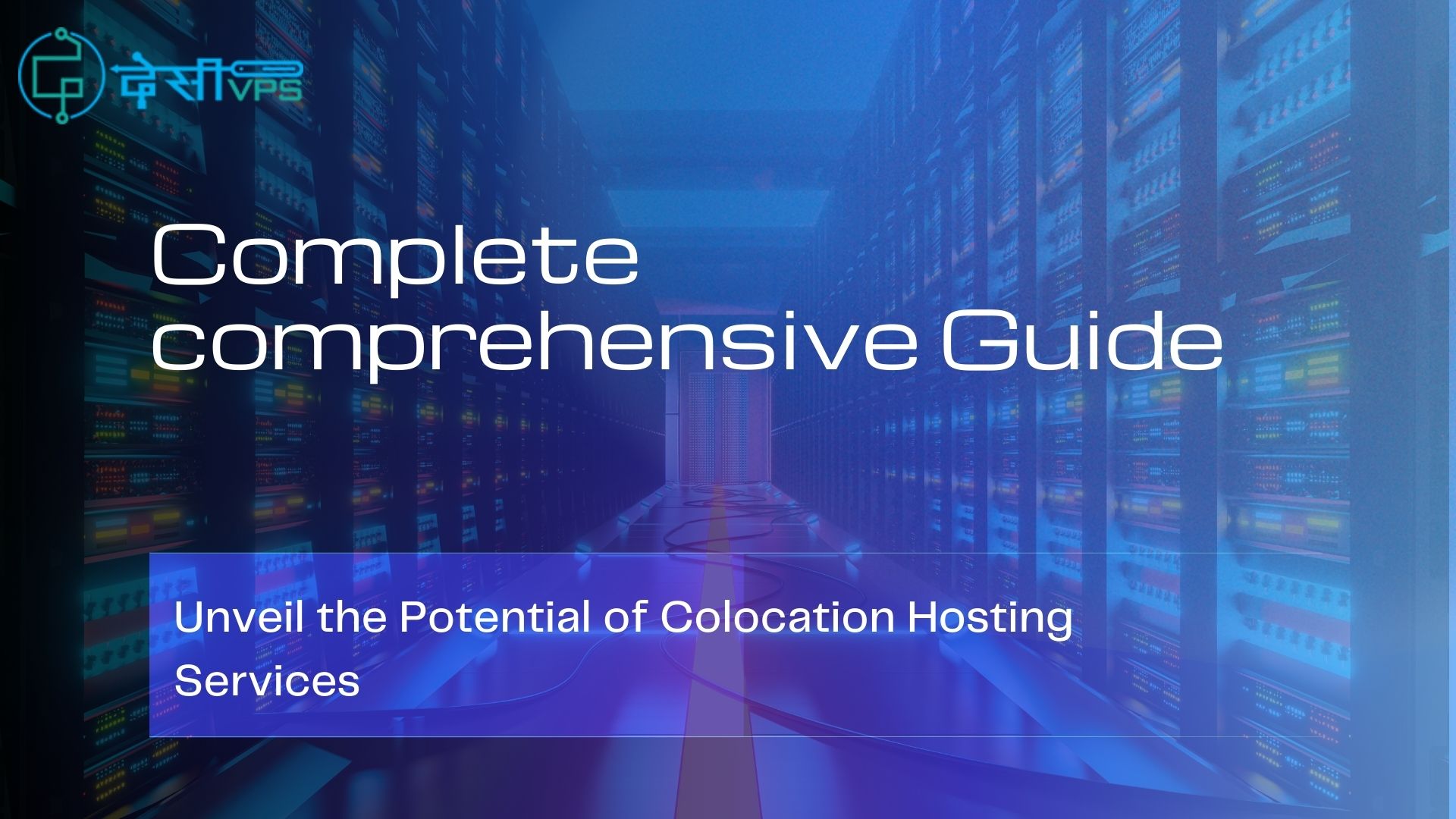In the digital age, businesses are constantly searching for trustworthy and scalable hosting solutions that can support their vital IT infrastructure. But for those companies that want to keep ownership of their data and applications but outsource the server and hardware management, colocation hosting services have emerged as a credible option. This article will focus on the intricacies of colocation hosting services and talk about its benefits, key features and considerations for businesses contemplating this type of hosting.

Knowing About Colocation Hosting
Colocation, also called “colo”, is a hosting platform where organisations hire space on data centres to host hardware components like servers and networking devices. Unlike traditional hosting arrangements where businesses rent servers from a provider, colocation allows the business to own and manage its hardware while outsourcing facility management as well as physical infrastructure to an IT data centre.
Important Colocation Hosting Service Features
1. Physical Security:
The security of clients’ equipment is a priority in data centres offering colocation services. These comprise security measures for the safety of equipment, which include round-the-clock surveillance and biometric access restrictions, as well as aided by personnel guards.
2. Redundant Power Supply:
In terms of power infrastructure, colocation facilities have a powerful system with several generators for backup power, as well as UPS systems and different sources of electricity. This minimises the occurrences of downtime due to power outages and ensures continuous operation.
3. High-velocity Internet access:
A crucial aspect of colocation hosting is connectivity. Most high-speed internet connections are always present in data centres so that organisations can enjoy reliable and quick network access for their servers.
4. Climatic Regulation and Cooling:
Data centres must provide humidity and temperature control to avoid the possibility that equipment becomes too hot. Advanced cooling technologies like liquid solutions and accurate air conditioning procedures are utilised for the maintenance of high server performance.
5. Network Infrastructure:
Colocation providers provide a large number of network infrastructure level options, such as reliable routers, switches and firewalls. This minimises network connectivity problems.
Advantages of Hosting in Colocation
1. Cost Savings:
Colocation provides businesses with an alternative to investing in and running their own data centre facilities by not doing this. Instead of establishing and maintaining an internal data centre, this can lead to huge savings.
2. Stability and Availability:
Professional data centre infrastructure is more reliable for services. Companies dependent on continuous online activity have to have high uptime, which is provided by redundant power-cooling network infrastructure.
3. Scalability:
The provision of co-location allows companies to grow their infrastructure easily. They are not burdened by space and power limitations that usually come with on-premises implementations since they can add or introduce new servers when needed.
4. Security and Compliance:
Mature data centres observe requirements and compliance standards for security. This guarantees that companies using colocation centres to house their equipment work in an environment that is secure.
Factors While Selecting a Colocation Provider
1. Location
The closeness of the colocation facility is critical as it has an effect on response times and latency. Otherwise, companies should determine whether the facility is susceptible to other types of hazards, such as natural disasters.
2. Connection facility
Assess different internet service providers and the range of network connections offered by the colocation provider. A well-connected facility provides reliability and optimal performance.
3. SLAs, or service level agreements
Analyse SLAs closely so that you know what kind of quality service and support the colocation provider can provide. This includes guarantees for several uptimes, response times and problem-solving processes.
4. Scalability Options
Choose a colocation service provider that can be expanded in the future. Monitor the scalability options, including power, space and network capacity, to ensure your infrastructure can grow without any hassles.
To Sum Up
Colocation hosting services provide businesses with the flexibility, security and dependability required for them to manage their IT infrastructure. By outsourcing the physical operations of their data centres, organisations can make use of senior colocation providers’ knowledge and resources to enable them to focus on their area strength. In a rapidly changing digital world, colocation is still an excellent option for companies in quest of hosting services that are somewhere between control, affordability and scalability.
